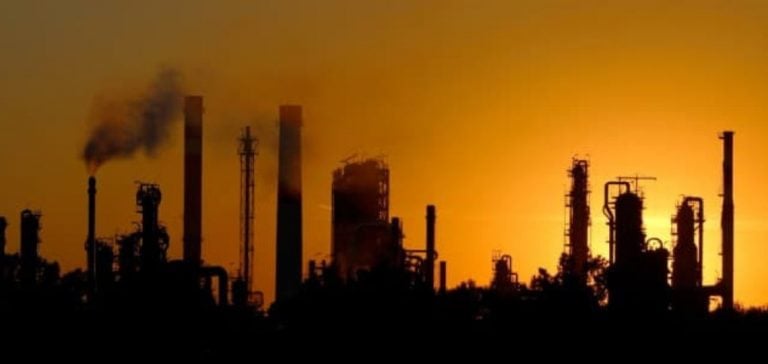A Chinese court has declared the bankruptcy of Shandong Changyi Petrochemical, one of the refineries owned by the Sinochem group.
This decision comes after months of uncertainty surrounding the future of several refineries located in Shandong province, China’s main refining center.
Two other refineries belonging to the group, Shandong Huaxing Petrochemical Group and Zhenghe Group Co Ltd, have also been declared bankrupt in recent days.
The combined capacity of the three sites is 380,000 barrels per day, representing around 3% of national refinery output.
However, weak demand and steadily rising crude oil prices have made operations at these sites unprofitable, prompting Sinochem to temporarily shut down some of these units before their final closure.
The Group has not yet specified the fate of the assets of the three refineries.
A petrochemical sector in difficulty
China’s refining market is bearing the full brunt of rising crude costs.
Refinery margins have been severely squeezed, particularly in Shandong province, where independent refineries operated at just 56.4% of capacity in August 2024.
This 10-point year-on-year drop reflects the economic challenges facing the sector.
Falling demand for fuel, coupled with rising costs, is putting pressure on local players, forcing them to adjust production.
These closures are part of a wider drive to rationalize refining capacity in China.
For several months, the authorities have been seeking to concentrate production around the largest units, which are more efficient and better integrated into global supply chains.
Small independent refineries, often located in Shandong, are the first victims of this restructuring, especially as they are largely dependent on crude oil imports for their operations.
Impact on the supply of petroleum products
The closure of these refineries directly affects the supply of refined petroleum products to the Chinese market.
Although Sinochem’s three refineries account for only a small share of national capacity, their strategic location in Shandong makes them important players in regional fuel supply.
The impact of their closure could therefore be felt on the local market, where fuel prices could rise in the short term.
However, it is unlikely that these closures will have a significant effect on a national scale.
China has excess refining capacity, and the large production units located on the country’s east coast can quickly make up for lost production.
In addition, falling demand for fuel, particularly in the industrial and transport sectors, has enabled the largest refineries to maintain high inventory levels.
Sinochem’s future strategy
The series of bankruptcies suffered by Sinochem could signal a review of its strategy in the petrochemical sector.
As the group strives to reduce its losses in a market with squeezed margins, it could turn to more profitable sectors of the energy chain, such as fine chemicals or energy distribution.
In addition, current market conditions are forcing many players in the sector to consider collaborations or mergers to consolidate their positions.
Sinochem could, for example, forge closer ties with strategic partners to reduce operating costs and secure access to crude oil resources, a key factor in maintaining its petrochemical activities.
The next few weeks will be crucial in assessing the Group’s ability to bounce back from these successive closures.
Analysts agree that Sinochem will have to review its priorities and consider a broader restructuring of its activities to adapt to an increasingly volatile market.






















